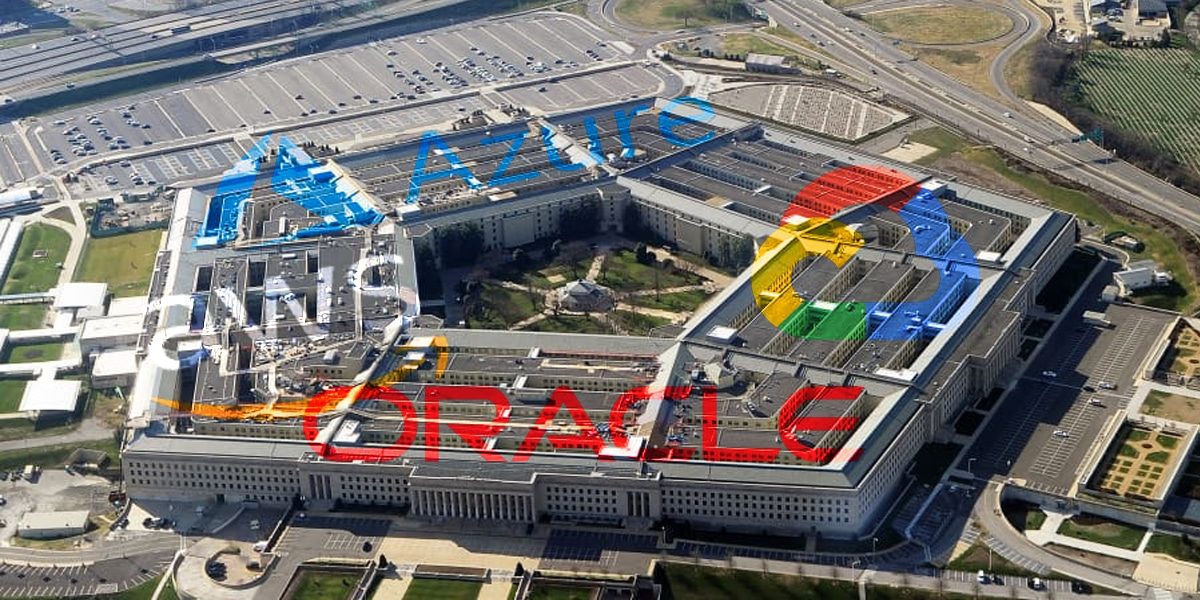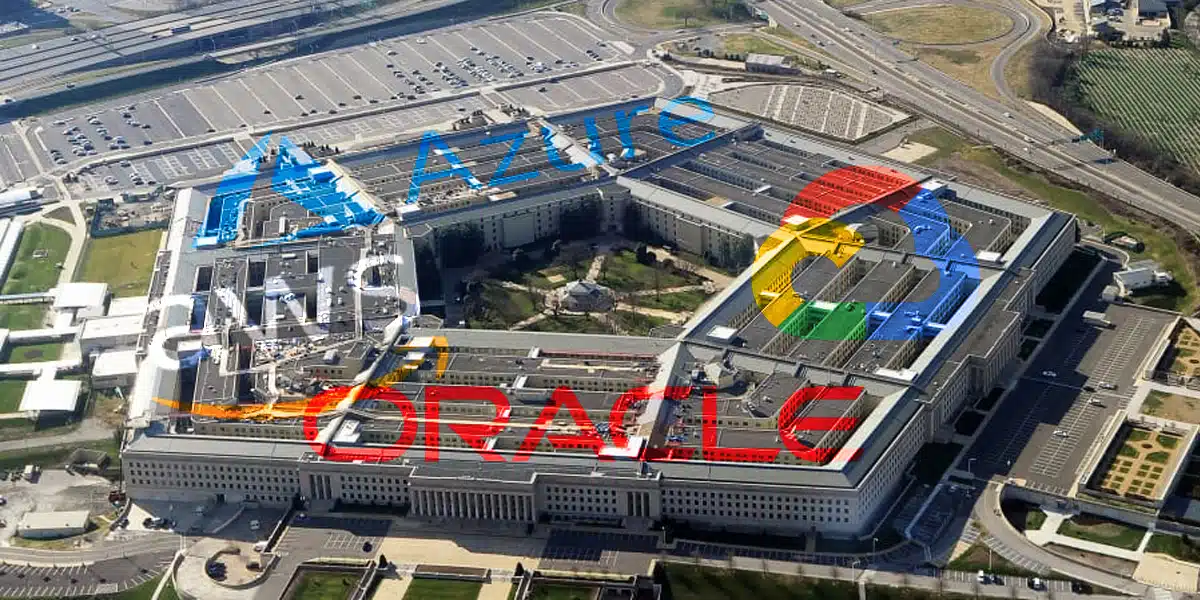The United States Department of Defence formally awarded four big-ticket cloud computing contracts to information technology giants Amazon, Google, Microsoft, and Oracle in what is seen as a departure from the Pentagon’s old approach of giving major contracts to a single vendor.
Estimated to cost as much as $9 billion, the contracts were formally announced on Wednesday, December 7th, and will run well into 2028.
However, as of press time, none of the aforementioned firms have made any statements regarding the matter.
A Necessary Change
According to Wedbush Securities tech analyst Dan Ives, this four-way deal is the biggest in history and a milestone for all the software companies involved. Ives also opines that this marks a period of change in how the Pentagon bids out tech contracts.
Three years ago, the Defense Department awarded a $10 billion cloud-computing contract to Microsoft for what was known as the Joint Enterprise Defense Infrastructure (JEDI.)
However, JEDI eventually found itself embroiled in a legal battle wherein it appeared that then-president Donald Trump interfered with the bidding process to give Microsoft the win over the other bidder at the time, Amazon.
Last year, the Pentagon scrapped the Microsoft deal altogether, stating that it came about at a time when the country’s defense requirements were different and the department did not know much about cloud technologies. Instead, Defense opened the bidding for what was now called the Joint Warfighting Cloud Capability (JWCC) initiative to multiple companies.
Market research at the time showed that Microsoft and Amazon were the best possible choices for the initiative, but officials opted to open the bid to the likes of Google, IBM, and Oracle.
A Win All Around
The announcement of the four-way joint contract is now seen as a major win for numerous technology firms, as it opens the door for other firms to get involved in major government initiatives.
When the JEDI initiative was first announced, it was noted that Microsoft had pushed aggressively to win its contract. It would have enabled the firm to monopolize the transformation and modernization of cloud computing technologies for the US military.
However, thanks to the efforts of companies like Oracle, which helped lobby the Pentagon to give cloud-computing and other information technology contracts to other companies, the risk of a single vendor holding a monopoly on government contracts has significantly decreased.







